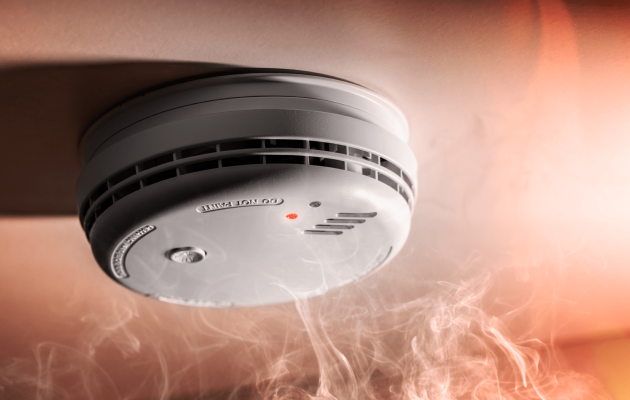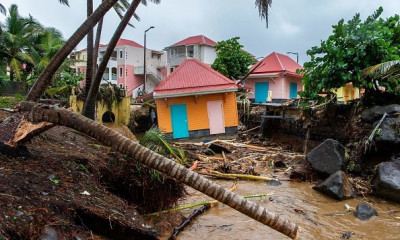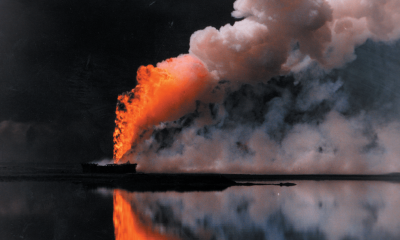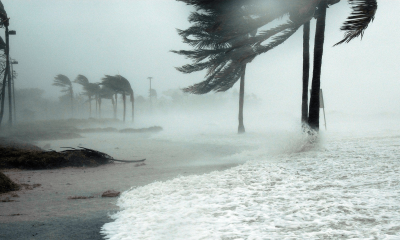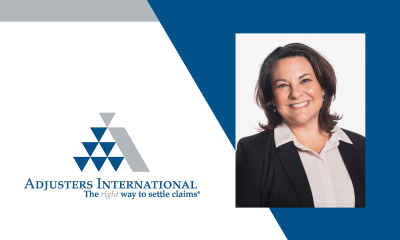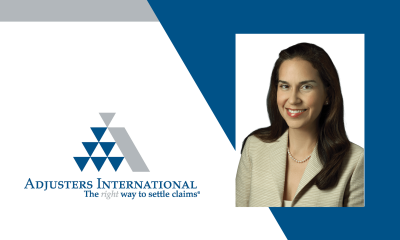Home Fire Prevention Tips
It’s only October but snow has already fallen in several parts of the U.S. Homeowners across the country are switching off their air conditioning, turning on their heaters and lighting their fireplaces and woodstoves. Along with warmth and comfort, heating sources also bring an increased risk of fire.
Home fires are a serious and deadly problem in the United States. According to the National Fire Protection Association (NFPA), last year more than 330,000 fires occurred in home properties, including one- or two-family homes, apartments and other multifamily housing. While home fires only accounted for 25% of all fires in the U.S., they were responsible for three-quarters of the civilian fire deaths (2,850) and 76% of injuries (11,172). In addition, these fires caused nearly $13 billion in direct property damage.
According to the Department of Homeland Security, which includes the U.S. Fire Administration, home fires are so lethal and destructive because they are fast, hot and dark. What starts as a small fire can fill a house with smoke and flame in minutes. That same smoke produces poisonous gases and is often more lethal than the fire’s heat. Room temperatures in a fire can rise to 600 degrees at eye level, resulting in injuries and deaths as the smoke makes escape difficult and rescue a challenge.
The good news is that a bit of preparedness goes a long way in preventing home fires - limiting death, injury, and damage if they do occur. Ready.gov recommends a series of preparedness activities to help prevent home fires:
Plan Ahead
Step one is to prepare for the worst. Everyone in your home should know what to do if a fire starts. Keep fire extinguishers accessible in the home. Ensure exits from each room are clear, windows can be opened, and screens can be removed. If someone in the home has a disability, ensure all doorways can accommodate their wheelchair or walker. Practice your escape plan twice per year.
Maintain Smoke Alarms
A smoke alarm is the best early warning system if a fire has started in your home. According to the NFPA, nearly three out of five home fire deaths were caused by property fires with no smoke alarms or smoke alarms that failed to operate. Every level of a home, including the basement, should have a smoke alarm. Replace smoke alarm batteries twice a year and regularly test alarms to ensure they’re in good operating order.
Closely Monitor Stoves and Grills
In the kitchen, don’t leave a stove on unattended. Open flames and hot electric burners present a high risk of a home fire. On the patio, keep grills at least ten feet away from siding and deck railings and out from under gutters and overhanging branches. Never grill inside a garage or other structure.
Carefully Operate Fireplaces, Woodstoves and Space Heaters
Homes with fireplaces, woodstoves or portable space heaters can face a heightened risk of home fires. Clean fireplace and woodstove chimneys annually and use a fireplace screen heavy enough to stop rolling logs and big enough to cover the entire opening to stop flying sparks. Don’t leave the house or go to bed without extinguishing the fire first. Only buy space heaters evaluated by a nationally recognized laboratory, such as Underwriters Laboratories (UL), and make sure it has a thermostat control mechanism to switch off automatically if the heater falls over. Keep combustible objects at least three feet away from portable heaters and only use them in well-ventilated rooms.
Watch the Kids
Children are fascinated by flames, so protect them and your home. It is crucial to demystify fire and educate them that fire is a serious tool and not something to play with. Keep matches and lighters out of children's reach and sight. Don’t leave children unattended by open flames like a gas stove or candles, even for a moment.
After A Fire
Even with careful preparation, accidents happen, and home fires occur. The preparation and presentation of your property insurance claim is your responsibility and is a time consuming and arduous process, especially when you’re simultaneously trying to care for your family. Using a public adjuster can make the claims process easier for a policyholder. Professional public adjusters document the home’s damage, including any hidden damages the insurance company’s adjuster may have missed, and account for the damaged and destroyed contents.
Should you or someone you know experience a fire or other loss at their home or business, the professionals at Adjusters International are here to help them receive the best possible settlement from their insurance coverage. With our team handling your insurance claim preparation, you are freed to focus on your family or business, knowing your financial settlement will be fair and just.

